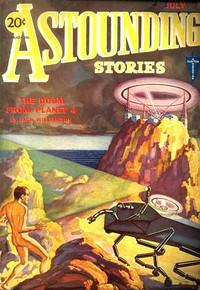Read this ebook for free! No credit card needed, absolutely nothing to pay.
Words: 90673 in 14 pages
This is an ebook sharing website. You can read the uploaded ebooks for free here. No credit cards needed, nothing to pay. If you want to own a digital copy of the ebook, or want to read offline with your favorite ebook-reader, then you can choose to buy and download the ebook.
CAMPAIGNING IN CUBA
STARTING FOR THE FIELD
I reached Tampa on the evening of Friday, May 6. The Pullman cars of the Florida express, at that time, ran through the city of Tampa and across the river into the spacious grounds of the beautiful Tampa Bay Hotel, which, after closing for the regular winter season, had been compelled to reopen its doors--partly to accommodate the large number of officers and war correspondents who had assembled there with their wives and friends, and partly to serve as headquarters for the army of Cuban invasion.
It was a warm, clear Southern night when we arrived, and the scene presented by the hotel and its environment, as we stepped out of the train, was one of unexpected brilliancy and beauty. A nearly full moon was just rising over the trees on the eastern side of the hotel park, touching with silver the drifts of white blossoms on dark masses of oleander-trees in the foreground, and flooding with soft yellow light the domes, Moorish arches, and long fa?ade of the whole immense building. Two regimental bands were playing waltzes and patriotic airs under a long row of incandescent lights on the broad veranda; fine-looking, sunbrowned men, in all the varied uniforms of army and navy, were gathered in groups here and there, smoking, talking, or listening to the music; the rotunda was crowded with officers, war correspondents, and gaily attired ladies, and the impression made upon a newcomer, as he alighted from the train, was that of a brilliant military ball at a fashionable seaside summer resort. Of the serious and tragic side of war there was hardly a suggestion.
On the morning after our arrival I took a carriage and drove around the city and out to the camp, which was situated about a mile and a half from the hotel on the other side of the river. In the city itself I was unpleasantly disappointed. The showy architecture, beautiful grounds, semi-tropical foliage, and brilliant flowers of the Tampa Bay Hotel raise expectations which the town across the river does not fulfil. It is a huddled collection of generally insignificant buildings standing in an arid desert of sand, and to me it suggested the city of Semipalatinsk--a wretched, verdure-less town in southern Siberia, colloquially known to Russian army officers as "the Devil's Sand-box." Thriving and prosperous Tampa may be, but attractive or pleasing it certainly is not.
As soon as I got away, however, from the hotel and into the streets of the town, I saw at almost every step suggestions of the serious and practical side, if not the tragic side, of war. Long trains of four-mule wagons loaded with provisions, camp equipage, and lumber moved slowly through the soft, deep sand of the unpaved streets in the direction of the encampment; the sidewalks were thronged with picturesquely dressed Cuban volunteers from the town, sailors from the troop-ships, soldiers from the camp, and war correspondents from everywhere; mounted orderlies went tearing back and forth with despatches to or from the army headquarters in the Tampa Bay Hotel; Cuban and American flags were displayed in front of every restaurant, hotel, and Cuban cigar-shop, and floated from the roofs or windows of many private houses; and now and then I met, coming out of a drug-store, an army surgeon or hospital steward whose left arm bore the red cross of the Geneva Convention.
The army that was destined to begin the invasion of Cuba consisted, at that time, of ten or twelve thousand men, all regulars, and included an adequate force of cavalry and ten fine batteries of field-artillery. It was encamped in an extensive forest of large but scattered pine-trees, about a mile from the town, and seemed already to have made itself very much at home in its new environment.
The first thing that struck me in going through the camp was its businesslike aspect. It did not suggest a big picnic, nor an encampment of militia for annual summer drill. It was manifestly a camp of veterans; and although its dirty, weather-beaten tents were pitched here and there without any attempt at regularity of arrangement, and its camp equipage, cooking-utensils, and weapons were piled or stacked between the tents in a somewhat disorderly fashion, as if thrown about at random, I could see that the irregularity and disorder were only apparent, and were really the irregularity and disorder of knowledge and experience gained by long and varied service in the field. I did not need the inscriptions--"Fort Reno" and "Fort Sill"--on the army wagons to assure me that these were veteran troops from the Plains, to whom campaigning was not a new thing.
As we drove up to the camp, smoke was rising lazily into the warm summer air from a dozen fires in different parts of the grounds; company cooks were putting the knives, forks, and dishes that they had just washed into improvised cup-boards made by nailing boxes and tomato-crates against the trees; officers in fatigue-uniform were sitting in camp-chairs, here and there, reading the latest New York papers; and thousands of soldiers, both inside and outside the sentry-lines, were standing in groups discussing the naval fight off Manila, lounging and smoking on the ground in the shade of the army wagons, playing hand-ball to pass away the time, or swarming around a big board shanty, just outside the lines, which called itself "NOAH'S ARK" and announced in big letters its readiness to dispense cooling drinks to all comers at a reasonable price.
The troops in all branches of the army at Tampa impressed me very favorably. The soldiers were generally stalwart, sunburnt, resolute-looking men, twenty-five to thirty-five years of age, who seemed to be in perfect physical condition, and who looked as if they had already seen hard service and were ready and anxious for more. In field-artillery the force was particularly strong, and our officers in Tampa based their confident expectation of victory largely upon the anticipated work of the ten batteries of fine, modern field-guns which General Shafter then intended to take with him. Owing to lack of transportation facilities, however, or for some other reason to me unknown, six of these batteries were left in Tampa when the army sailed for Santiago, and the need of them was severely felt, a few weeks later, at Caney and San Juan.
In an interview that I had on the following day with Colonel Babcock, General Shafter's adjutant-general, I was informed, confidentially, that the army was destined for "eastern Cuba." Small parties, Colonel Babcock said, would be landed at various points on the coast east and west of Havana, for the purpose of communicating with the insurgents and supplying them with arms and ammunition; but the main attack would be made at the eastern end of the island. He did not specifically mention Santiago by name, because Cervera's fleet, at that time, had not taken refuge there; but inasmuch as Santiago was the most important place in eastern Cuba, and had a deep and sheltered harbor, I inferred that it would be made the objective point of the contemplated attack. The Secretary of War, in his reply to the questions of the Investigating Commission, says that the movement against Santiago, as then planned, was to be a mere "reconnaissance in force, to ascertain the strength of the enemy in different locations in eastern Cuba"; but Colonel Babcock certainly gave me to understand that the attack was to be a serious one, and that it would be made with the whole strength of General Shafter's command. The matter is of no particular importance now, except in so far as the information given me by Colonel Babcock indicates the views and intentions of the War Department two weeks before Admiral Cervera's fleet took refuge in Santiago harbor.
Three hours later I was awakened by shouted orders, the tramping of feet, and the rattling of heavy chain-cable on the forward deck, and, dressing myself hastily, I went out to ascertain our situation. The moon was hidden behind a dense bank of clouds, the breeze had fallen to a nearly perfect calm, and the steamer was rolling and pitching gently on a sea that appeared to have the color and consistency of greenish-gray oil. Two hundred yards away, on the port bow, floated a white pyramidal frame in the fierce glare of the ship's search-light, and from it, at irregular intervals, came the warning toll of a heavy bell. It was the bell-buoy at the entrance to Key West harbor, and far away on the southeastern horizon appeared a faintly luminous nebula which marked the position of Key West city. Under the war regulations then in force, no vessels other than those belonging to the United States navy were permitted to enter or leave the port of Key West between late evening twilight and early dawn, and we were, therefore, forced to anchor off the bell-buoy until 5 A. M. Just as day was breaking we got our anchor on board and steamed in toward the town. The comparatively shallow water of the bay, in the first gray light of dawn, had the peculiar opaque, bluish-green color of a stream fed by an Alpine glacier; but as the light increased it assumed a brilliant but delicate translucent green of purer quality, contrasting finely with the scarlet flush in the east which heralded the rising, but still hidden, sun. On our right, as we entered the wide, spacious harbor, were two or three flat-topped, table-like islands, or "keys," which, in general outline and appearance, suggested dark mesas of foliage floating in a tropical ocean of pale chrysolite-green. Directly ahead was the city of Key West--a long, low, curving silhouette of roofs, spires, masts, lighthouses, cocoanut-palms, and Australian pines, delicately outlined in black against the scarlet arch of the dawn, "like a ragged line of Arabic etched on the blade of a Turkish simitar." At the extreme western end of this long, ragged silhouette rose the massive walls of Fort Taylor, with its double tier of antiquated embrasures; and on the left of it, as the distance lessened and the light increased, I could distinguish the cream-colored front of the Marine Hospital, the slender white shaft of the lighthouse, the red pyramidal roof of the Government Building, and the pale-yellow walls and cupola of the Key West Hotel--all interspersed with graceful leaning palms, or thrown into effective relief against dark masses of feathery Australian pine.
Free books android app tbrJar TBR JAR Read Free books online gutenberg
More posts by @FreeBooks

: Encyclopaedia Britannica 11th Edition Châtelet to Chicago Volume 6 Slice 1 by Various - Encyclopedias and dictionaries


: The Academy Keeper Or Variety of useful Directions Concerning the Management of an Academy The Terms Diet Lodging Recreation Discipline and Instruction of Young Gentlemen. With the Proper Methods of addressing Parents and Guardians of all Ranks and Condit







